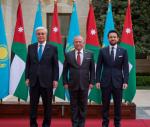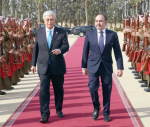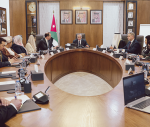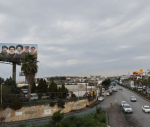You are here
Charlie and the anti-Muslim media factory
Jan 17,2015 - Last updated at Jan 17,2015
It is easy to discuss the deadly attack on Charlie Hebdo as an attack on freedom of expression.
But are we supposed to be surprised that a global terror organisation known for its brutal disregard for human rights and humane values would attack a media outlet that has specialised in provoking it?
Just as much of the social media in the Arab/Muslim world has routinised anti-Semitic rants, there is a global industry of outlets dedicated to all things anti-Muslim.
In any given week, French, European and increasingly Indian journalists, bloggers, tweeters and others regularly express all sorts of things that are offensive or provocative to Muslims — or at least the most devout and fanatical among them.
There are literally hundreds of websites, radio programmes and TV networks that specialise in anti-Muslim and anti-Islam propaganda.
The Twitter hashtag #killallMoslems has been around since 2011. While this abundance of offensiveness may comfort those concerned about freedom of expression, it does not give me any comfort as a European Muslim.
Europe’s suspicion of Islam is not new, of course, and one could say that the feeling is mutual. But the level of anti-Muslim provocation has become unprecedented recently.
In Germany, the so-called Pegida movement now holds weekly anti-Muslim marches in several cities (though, in fairness, even bigger rallies, and almost all of Germany’s political elite, have opposed the Pegida marchers).
Last year, the mayor of Sargé-lès-le Mans, a French town of 3,500 people with 180 Muslim students, sought to impose pork meat on all schools.
A couple of years earlier, then-French president Nicolas Sarkozy joined in a campaign to ban halal meat branding, which became an election issue. The Swiss, meanwhile, have banned minarets. The list goes on.
Minorities are easy targets everywhere (certainly, Christians and Jews do not have an easy time nowadays in Muslim-majority countries).
And, given the fear campaign propagated by Al Qaeda and its affiliates, on the one hand, and right-wing racists, on the other, many people are unaware that Muslims are actually a very small minority in all European (and Western) countries.
That is why Charlie Hebdo’s mockery of the sacred beliefs of minorities (Jews, Muslims and gays alike) is not an act of bravery.
Most people abstain from such provocations not because they are cowards, but because they believe, quite reasonably, that such behaviour serves no good or useful purpose.
European Muslims are no less peaceful than their non-Muslim neighbours. Almost all terrorist acts carried out by Muslims in Europe and other countries have been the work of affiliates of one umbrella organisation — Al Qaeda.
Though this organisation’s far-reaching influence is worrisome, it is also comforting to know how limited violent ideology is among Muslims, particularly in the West.
Indeed, there are no real homegrown Islamist terrorist organisations of any significance in Europe. Radicalised European Muslims must look elsewhere.
To be sure, Muslim-majority countries are not known for their affection for free speech. But in the wake of the attack on Charlie Hebdo, it is worth noting that, apart from war-torn Iraq and Syria, more journalists are killed each year in the largely Catholic Philippines than in any Muslim-majority country.
Unfortunately, as the horrific murder of 77 people by Anders Breivik in my adopted country of Norway has shown us, it only takes one organisation or one individual to commit an atrocity, whatever a society’s level of education and living standards.
Yet, while lone wolves like Breivik are hard to detect, active members of terror organisations are much easier to detect and monitor.
This is where the attacks in Paris become more troublesome.
Here was a case of a catastrophic intelligence and security failure that allowed a group of four who were known to the police to be members of a globally active terrorist organisation to operate with relative ease in the French capital.
Why were they on the loose?
Why were they not monitored and stopped earlier?
How many more such people, known to the police, are out there?
This is the discussion that is needed.
Focusing the debate solely on Islam and Muslims and the prospect of religious reform, integration and co-existence is a way to camouflage failure.
Muslims are already very much part of every sphere of European life, including the security apparatus and the army.
European Muslims are integrated in their societies as professionals, athletes, academics and civic leaders.
If we European Muslims are expected to identify with our citizenships and other secular identities, then our fellow Europeans should not categorise us by our religious identity.
No one should presume that European Muslims must apologise or explain the actions of a terrorist organisation with a cult-like religious ideology, just as no one expected Norwegians to apologise for Breivik.
Al Qaeda and its affiliates have been known to attract disenchanted individuals from among Muslim and non-Muslim Europeans alike.
If we close our eyes, we can think that the Paris attacks exposed a contradiction between Islam and freedom of expression, and between Muslims and Europeans.
If we open them and start looking at cause and effect, we can avoid the abyss to which such willful blindness beckons us.
The Paris attacks targeted innocent people everywhere, and the public deserves answers from those whose job it is to prevent such incidents from happening.
The writer is academic director of innovation and policy at INSEAD. ©Project Syndicate, 2015. www.project-syndicate.org












